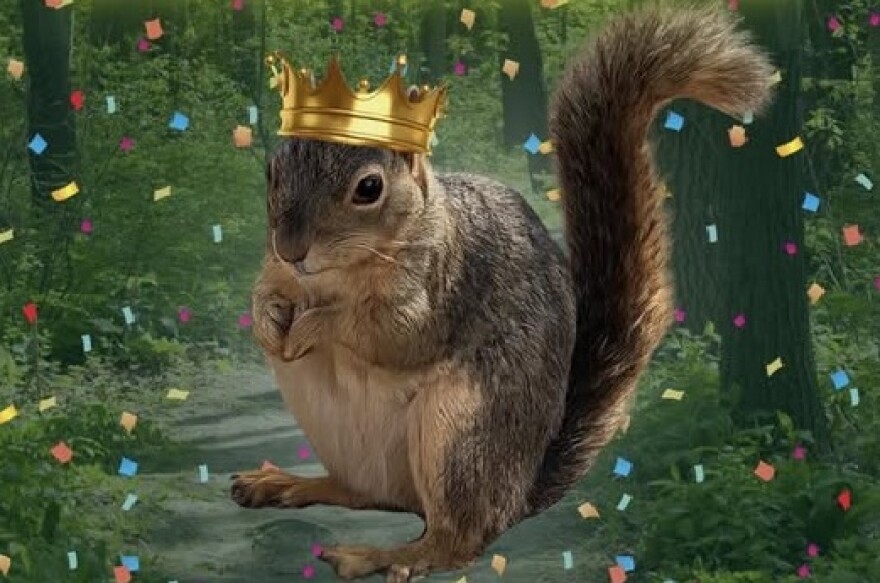Sign up for TPR Today, Texas Public Radio's newsletter that brings our top stories to your inbox each morning.
A competition put on by Texas Parks and Wildlife has crowned the state's "Fattest Squirrel." The competition was held at several Texas State Parks. It was the brainchild of Texas Parks and Wildlife Department’s Carolanne Brannon, Park Superintendent at Meridian State Park. She got the idea from the “Fat Bear” competition held each year in Alaska, and the contest was run on Facebook, similar to a March Madness Bracket.
Users voted on pictures of fat squirrels taken around the state at various parks.
“We started out with eight matchups, and each round was an elimination round. So, if your squirrel didn't gain the most votes, then it was immediately eliminated and the squirrel that won the matchup would proceed into the quarterfinals, the semi-finals, and then, of course, the final finals. The votes were collected on Facebook by liking or commenting under the squirrel that the voter thought was the fattest squirrel, and the voting criteria was simply based off of vibes alone,” Brannon said.
“There was not really any way to weigh these squirrels. There's not really a great scale or way to capture and weigh the squirrels, see which one is the heftiest. And so we had the parks create little bios to introduce their squirrel, and each squirrel had their own little unique personality and name.”
And the winner?
"Chunkosaurus Rex at Dinosaur Valley State Park,” said Brannon. Chunkosaurus Rex beat out Chunk Norris from Fort Richardson State Park.

Does this mean that there is an obesity problem with squirrels in Texas? No, says Brannon.
“A successful squirrel in wintertime is a heavy squirrel. They don't hibernate like bears or other animals do. They do stay active in the wintertime, but they don't move at the same pace. Their metabolism decreases, their heart rate decreases, and they get a little less active and spend a lot more time snuggling in with their other squirrels and their dens,” she said.
“So, they do need to put on weight to survive the wintertime when food is scarce. So, you do want to see a heavy squirrel this time of year. It means that they're healthy and they're doing all the right things to make it to spring.”
Brannon says there are plans to hold the contest again next year in November.



